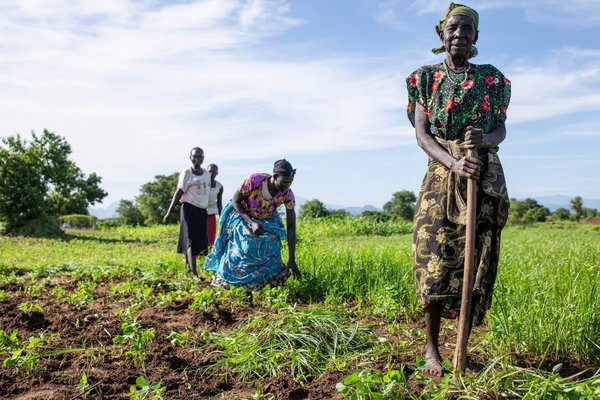- Share this article
- Subscribe to our newsletter
Joining forces to tackle rural gender inequalities
The Food and Agriculture Organization of the United Nations (FAO), the International Fund for Agricultural Development (IFAD) and the World Food Programme (WFP) reported in May 2019 that they had joined forces to tackle rural gender inequalities. With five million euros of financial support from the European Union (EU) for four years, they had started implementing a new joint programme in early 2019 focusing on upscaling Gender-Transformative Approaches (GTAs) for impact on Sustainable Development Goal 2 (SDG2) – Zero Hunger.
Four key outputs expected:
1. The programme incorporates a tested Theory of Change for GTAs in agriculture, food security and nutrition, outlining how GTAs help in achieving equitable and sustainable rural development. This Theory of Change aims to serve as a basis for updating and strengthening the gender-transformative dimension in the agencies’ existing guidance materials and tools, as well as for developing new ones.
2. Increased competency of technical staff to integrate GTAs in policy and programmatic work is a further element of the programme. It will pilot new capacity development methodologies and tools for staff and partners for gender-transformative work, with the aim of eventually incorporating them into the mandatory staff learning strategies of each agency. In addition, various GTA learning events will be organised.
3. Furthermore, the programme seeks increased collaboration between FAO, IFAD and WFP around GTAs. To achieve this, there will be a continual process of knowledge management and sharing throughout the programme. Evidence and knowledge products, as well as guiding materials and tools developed by the programme, will stimulate joint programming, intervention design, implementation, evaluation and learning of lessons.
4. Finally, an institutional “mindset shift” is to take place in each agency to engage with GTAs. In this regard, the programme will work to strengthen the capacity of technical staff to mainstream gender-transformative methods in all areas of their work. It will also involve senior managers in FAO, IFAD and WFP, in order to strengthen institutional uptake of GTAs.
Conventional gender-sensitive methodologies tend to treat the symptoms of gender disparities, but often fail to address the underlying structural impediments, according to FAO, IFAD and WFP. They urge that it is necessary to move beyond reaching and benefiting women to challenging and addressing the discriminatory norms and practices that cause gender inequalities. GTAs actively strive to examine, question and modify gender norms and imbalances of power. They encourage critical awareness among men and women at all levels in order to change the gender distribution of roles, responsibilities, resources and opportunities.
Ines Lechner, editor, Rural 21





Add a comment
Be the First to Comment